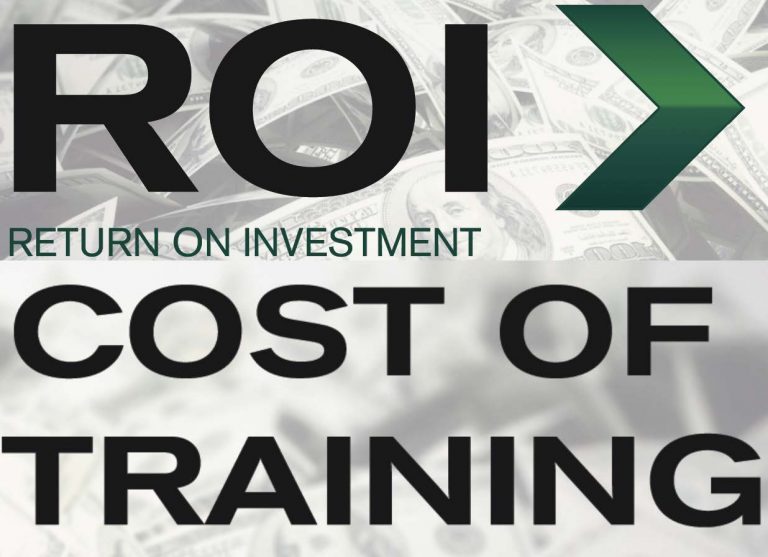
From learning to take action to cultivating an uplifting atmosphere, here are 13 answers to the question, “What are your most effective tips to make great managers effective leaders?”
- Take Initiative
- Relearn to Be Human
- Prioritize Communication
- Understand Relationships
- Encourage Using Data
- Get a Dose of Empathy
- Show Trust in Your Employees
- Embrace Your HR Team
- Cultivate Self-awareness
- Sharpen Your Emotional Intelligence
- Help Them Develop a Learner Attitude
- Consistently Practice Leadership Skills
- Work Hard on Creating a Positive Environment
Take Initiative
The biggest difference between a manager and a leader is initiative. A manager executes decisions according to what others think, while leaders are the ones doing the thinking and acting accordingly.
As a manager, don’t shy away from taking initiative, acting on your knowledge and experience, and acting on what your brain is telling you is a great idea. Managers who get ahead of the game and take the initiative can become highly effective leaders.
John Berry, CEO and Managing Partner, Berry Law
Relearn to Be Human
Managing people is a 1980s construct, not applicable in today’s world. People don’t want to be managed. And they certainly don’t want to be micromanaged. They want to be led, motivated, engaged, empowered, and challenged. To be effective, unlearn management, relearn to be human, and learn to be a people-centric leader.
You manage things, policies, processes, and procedures. You LEAD people! So stop treating employees as only a means to an end result. This mindset is contributing to millions of people around the world quitting their jobs and seeking alternative employment with organizations that value them as human beings.
Leaders can stem the impact of the Great Resignation and Quiet Quitting trends by creating workplaces of dignity, opportunities, equality, and harmony. This is true for people-centric leadership.
Steven Howard, Leadership Mentor and Author, Caliente Leadership
Prioritize Communication
Effective communication is the foundation of successful leadership, as it helps managers to build trust, establish clear expectations, provide feedback, and address any issues that arise in a timely and effective manner.
To be effective leaders, managers should aim to communicate frequently and clearly with their team members. This includes actively listening to their concerns and ideas, providing regular updates and feedback, and being transparent about goals and expectations. Additionally, managers should strive to create an open and inclusive work environment where team members feel comfortable sharing their thoughts and opinions.
By prioritizing communication, managers can build strong relationships with their team members, promote collaboration and innovation, and ultimately drive better results for the organization.
Luciano Colos, Founder and CEO, PitchGrade
Understand Relationships
Ground your training in the understanding of relationships! Everyone benefits when the leader understands how to develop and use relationships in a leadership role. This foundation creates productive interaction that spans the gap from coworker to customer.
Ed McManus, Author, Relationship Media
Encourage Using Data
In today’s fast-paced business environment, it’s essential for managers to have access to accurate, timely, and relevant data that can inform their decision-making processes. By using data to drive decision-making, managers can better understand the needs and challenges of their teams, identify areas for improvement, and take actions that are aligned with the goals of the organization.
An example? Data can help managers to identify trends and patterns in employee engagement, turnover, and productivity. Armed with this information, they can develop targeted interventions and programs to improve employee well-being and engagement, reduce turnover, and increase productivity.
Piotrek Sosnowski, Chief People and Culture Officer, natu.care
Get a Dose of Empathy
Management and leadership go hand-in-hand, but they’re not the same role. For managers, the daily grind usually means taking a step back from the rest of the workforce in order to maintain a bird’s-eye view of the office.
For managers looking to switch from overseeing to leading, a dose of empathy can help. Learning to put yourself in others’ shoes is a skill that can—and should—be developed. Once you’re able to consider any situation from multiple viewpoints, paths to resolution become obvious.
It’s no longer about enforcement, but compromise. Creating systems and processes that workers embrace is a crucial aspect of leading any team, so set aside the rulebook, and learn to consider all possibilities.
Debbie Winkelbauer, CEO, Surf Search
Show Trust in Your Employees
Becoming the best leader is difficult. But if you focus on one thing, it can surely help you become the one: trust your employees.
When you show trust in someone, they become liable to meet your expectations. The same goes for a manager and employee relationship. Whenever you, as a manager, assign any task to an employee, tell them you believe them very much to complete the task impeccably.
Effective managers are always good delegators. They can assign tasks to team members according to their skill sets and boost their confidence with the feeling of trust. Mutual trust between employees and managers is crucial for the success of projects.
Give employees enough space to share their problems. It is possible when you trust them and their problems. Breaking the trust would not only hurt you, but it can hurt the employee as well, as they could not meet the expectations. So, they would try hard next time to prove themselves.
Saikat Ghosh, Associate Director of HR and Business, Technource
Embrace Your HR Team
Managers must partner with HR to strengthen their leadership effectiveness. Why? This is what HR does! Too often, managers are at odds with their HR departments. Their experience has included being nagged to fulfill requirements or purely administrative tasks. But a good HR department is so much more!
HR should lift managers up and help them through tough situations. Need to prep for a difficult employee conversation? Role-play with your HR team. Need suggestions on how to increase morale? Brainstorm with HR. HR should be coaching, providing resources, and generally supporting all managers.
Managers are the front line of culture in an organization. By working together, managers and HR can create a fantastic employment experience and make their company an employer of choice.
Christie Engler, Director of People and Culture, Willory
Cultivate Self-awareness
Self-awareness allows you to understand your strengths and connect better with others. It helps you develop your emotional intelligence and gain a deeper understanding of other people’s perspectives.
It also allows you to have better insight into your own thoughts and emotions, as well as what triggers your reactions. This gives you the capability to be in control of your output and use it more efficiently in influencing others.
Inner work is always the starting point of building great leadership competencies. If you don’t know yourself, it’s much harder to connect and inspire others to follow you.
Christina Ioannidou, Wellbeing-at-Work Coach, People and Culture Director, Spark Back Coaching
Sharpen Your Emotional Intelligence
Emotional intelligence is a game-changing skill that allows managers to truly connect with their team, understand their needs, and inspire them to reach their full potential.
By mastering this powerful ability, managers can foster a positive work environment, enhance collaboration, and drive the team toward achieving shared goals. So, if you want to elevate your management game and become an unstoppable leader, invest time and effort into sharpening your emotional intelligence skills. Trust me, it’s worth it!
Michael Lazar, Executive, ReadyCloud
Help Them Develop a Learner Attitude
Skilled managers can become effective leaders when they develop a learning attitude. This mentality opens their minds to learning new ways to lead people and manage them empathically, which leads them to maximize their potential.
Great managers need to view their teams as teachers for their growth and leverage the opportunity to learn something new from each interaction.
Liam Liu, Co-founder and CMO, ParcelPanel
Consistently Practice Leadership Skills
Managers need to practice their leadership and communication skills in a safe space and receive feedback on how they come across. As much as we want to create feedback cultures where direct reports happily tell their managers exactly what they think of them and how they are doing, it doesn’t happen.
So how will a manager really know how they are doing? We believe people need to have a safe space to focus on practicing new skills they are developing and receive feedback on how they are doing. This “deliberate practice” (Ericsson) means that skills learned are applied, remembered, and developed.
Phil Allen, Client Director, Practice Room Online
Work Hard on Creating a Positive Environment
A positive environment is extremely important for turning an excellent manager into an effective leader. This is because a positive environment helps to foster happier employees who will be more apt to follow your lead.
It’s easy as a manager to ignore things like workplace culture, but this isn’t an effective way to manage a team and lead them to success. When you work at making the workplace a good one, you make it easier for employees to trust your judgment and your vision.
Daniel Climans, Senior Manager, Digital Marketing and Partnerships, Sticker You
At Keystone Group International, we embrace conscious leadership and intentional communication. We create impact at the intersection of Human + Business Needs. Reach out to us if you’re interested in learning more about how we can help you build a realistic and actionable plan that unleashes your full potential.














